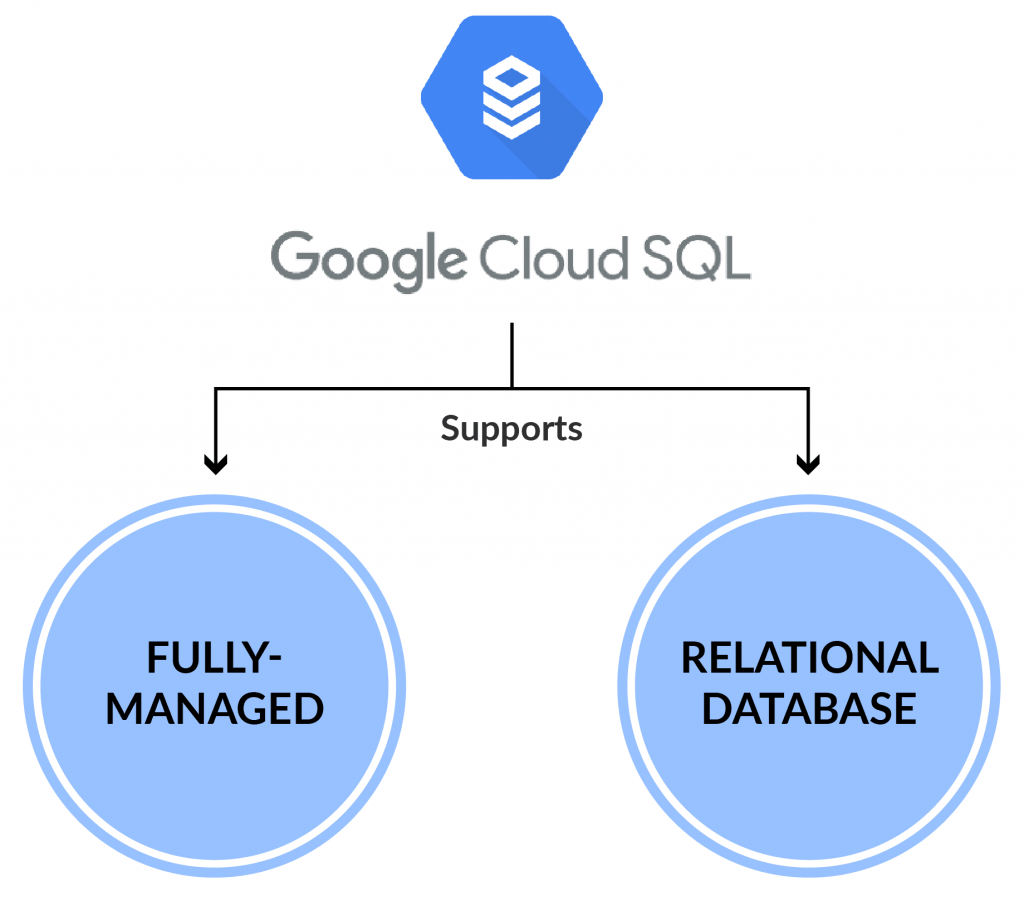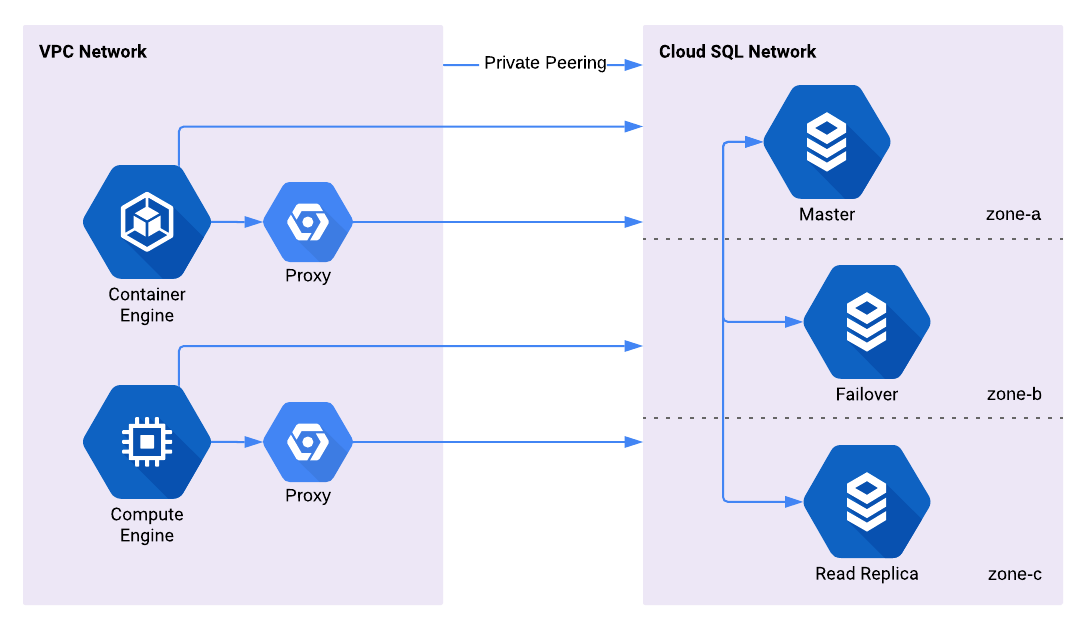Table of Contents
Introduction of Google Cloud SQL
Google Cloud SQL is a fully managed Relational Database Service for SQL, Postgre SQL, and SQL Server. Cloud SQL is fully hosted on Linux. Cloud SQL is a web service you use through the internet, and this is a service that allows you to configure and use relational databases that live in Cloud SQL. Any existing databases in MySQL, Postgre SQL, or any other structured database can be migrated to Cloud SQL. Google control and manage replication, patch management, and database management to guarantee, and execution. Google Cloud SQL supports multiple versions such as, fully managed MySQL supports 5.6,5.7 & 8.0 versions, Postgre SQL supports 9.6, 10, 11, 12, 13 & 14 versions, and SQL Server (2017-2019). In Google Cloud SQL you can take a maximum of 96 vCPU and 624 GB of RAM (vertical scalable), and you can store a maximum of 64TB data in Cloud SQL. Supports for Private IP – Google Cloud SQL provides Private IP for storing your data privately and internally. Import and export databases using MySQL, or import and export CSV files.

Concepts of Google Cloud SQL
Cloud SQL is a cloud-based database service that provides a fully managed database environment in the cloud. It enables users to easily create, manage, and scale databases without the need to worry about the underlying infrastructure, hardware, or software. Cloud SQL provides all the features of a traditional on-premise database but with the added benefits of cloud-based computing.
Cloud SQL Instance
A Cloud SQL instance corresponds to one VM, which means the database you create is working on Virtual Machine but you didn’t create a VM or set up a VM Google will manage it. The VM includes the database instance and accompanying software containers to keep the database’s instance up and running.
Database Instance
A database instance is the software and files that operate the database: MySQL, Postgre SQL, and SQL Server.
Public and Private IP
In Cloud SQL, Public IP means that the instance is accessible through the public internet, but is accessible through a VPC Cloud SQL instances can have both a public and a private IP.
High Availablity
High availability in Cloud SQL works by having two sync instances: Primary and Standby each instance has exactly one VM, and each instance is in a different zone but in the same region. High availability in means, when the primary instance is not working due to maintenance, errors, or any other situation, so in this situation, the standby instance will replace the primary instance it will happen automatically, even if you can not assume the primary instance is not working. When the primary instance is destroyed or the standby instance will take its place, in backends will create one more standby instance. The one on which the app is working always remains the primary instance.
Failover
Failover is the procedure of that situation when the original primary instance fails or in any case, the primary instance is not working, it will go on the standby instance. This is the failover process.

Features of Google Cloud SQL
Google Cloud SQL is a fully managed database service that offers a range of features to make it easy for users to deploy, manage, and scale their databases in the cloud. Here are some of the key elements of Google Cloud SQL.
Standby Instance: Cloud SQL
The standby instance is utilized in high accessibility to supplant the primary instance when failover happens. The standby instance doesn’t show up in the Google Cloud Console when failover happens, connections to the primary instance are consequently moved to the standby instance.
Clone: Cloud SQL
At the point when you clone a SQL instance, you make an instance that is a duplicate of the source instance, yet all at once it’s free. After the cloning is finished, changes to the source instance are not reflected in the clone, and changes in the clone are not reflected in the source instance.
Replication: Cloud SQL
Replication is the procedure of making copies of a Cloud SQL instance or an on-premises database and offloading work to the copies. The fundamental justification for utilizing replication is proportional to the utilization of information in a database without debasing execution on the primary instance.
Use Cases of Google Cloud SQL
Google Cloud SQL is ideal for businesses of all sizes, especially those that need to manage and scale databases quickly and efficiently. The service is particularly useful for e-commerce websites, online marketplaces, and social media platforms, where data is critical for success.

Leave a Reply